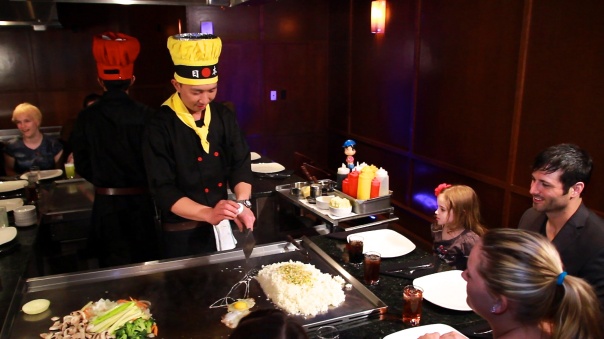Category Archives: restaurant industry
The Basics of Franchising: Will You Start the Next “Subway”?
Written By: Daniel Hart
Edited By: Salene Kraemer
From time to time, we have clients buy into a franchise or occasionally want to franchise his or her own business concept.
Franchising is a business model that combines aspects of working for yourself and working for someone else. It is an efficient system for an individual who wants to own/run a business but lacks the experience to do so. Within the United States, there are about 3,000 established franchise brands operating in over 200 different lines of business. A franchise is a legal and commercial relationship between the owner of a trademark, trade name, and business system (franchisor) and an individual or group wishing to use that identification in a business (franchisee). The most common form of franchising is product/trade name franchising in which a franchisor owns the right to a trade name and/or trademark and licenses the rights to use those.
 Buying a franchise offers many advantages that is not available to an individual starting a business from scratch. Here are a few examples:
Buying a franchise offers many advantages that is not available to an individual starting a business from scratch. Here are a few examples:
- Proven business system and brand name. Through years of experience and trial and error, franchisors have developed a business system and brand name that are successful.
- Pre-existing business relationships. Many franchises have existing relationships with suppliers, distributers, and advertisers that franchisees can utilize. Entrepreneurs must develop these relationships on their own.
- Quality market research. Typically, a franchisor will perform substantial market research into competition and the demand for the product or service in a specific location before allowing a franchisee to open a franchise there.
Similar to an entrepreneur opening their own business, a franchisee must  spend a substantial amount in order to obtain their own franchise.
spend a substantial amount in order to obtain their own franchise.
- First, there is an initial franchise fee, which is a one-time charge assessed to a franchisee in order to use the business concept and trademarks, attend training program, and learn the entire business. Franchise fees can have varying ranges depending on the size of the franchise system. This can range from as low as $2,000 to over $100,000.
- Depending on the specific type of business that you franchise, a variety of additional up-front costs can occur. These costs include rent/construction cost of building new facility, equipment, signage, initial inventory, working capital, and advertising fees.
After these initial costs and fees, a franchisee generally pays the franchisor royalties running around 5 to 8 percent of gross revenue plus contributing funds to a company-wide advertising program.
Many people may ask “why should I pay tens of thousands or hundreds of thousands of dollars before I start and then a royalty percentage every year after that?” For some, the answer is clear. By opening their own franchise of an already successful name-brand business, many can make more money quicker than opening their own business. Also, there is a greater likelihood that long-term return on their investment will be realized.
 As with starting any business, it is vital to perform due diligence before investing in a franchise. Here are some examples of basic information you need to discover before committing to a franchise:
As with starting any business, it is vital to perform due diligence before investing in a franchise. Here are some examples of basic information you need to discover before committing to a franchise:
- Research growth potential. Simply, you need to make sure that there is a strong-likelihood that you can increase profits and have a successful business. Also, is there a market for your business where your location will be?
- Check consumer and franchise regulators. Check these within your state to see if there are any serious problems with that company. Check with the Better Business Bureau for any complaints against the company.
- Search public court records. Is the company involved in any litigation? If so, determine the nature of the lawsuit. If the nature of the lawsuit involves fraud or regulatory violations, that is a bad sign.
- Request a Franchise Disclosure Statement: By law, this document must be given to all prospective franchisees at least 10 business days before any agreement is signed. A franchise disclosure statement (FDD) contains an extensive description of the company. It includes information such as amount of fees required, any litigation/bankruptcy history, trademark information, advertising program, equipment you are required to purchase, and the contractual obligations of both franchisor and franchisee. If a franchise will not give you a FDD, you probably should not do business with that company.
- Contact other franchisees: The FDD should contain a list of existing and terminated franchisees. Use this list to your advantage. Contact current franchisees in order to gain insight as to whether or not the training was helpful, how well the franchisor responds to your needs, and whether sales/profits met their expectations. Reach out to a couple terminated franchisees as well. Ask why their franchise agreement was terminated. Was it due to lack of business, bad franchisor, or for some other reason? Also, if the list of terminated franchisees is quite lengthy, that might be a sign that that franchise is not doing well.
- Visit a current franchise location: This can give you a lot of information. You can determine whether or not that franchise has a healthy flow of customers. You might get an in-person conversation with a current franchisee and see how the operations are run.
By performing due diligence, you will have a clear picture as to whether or not you will buy a successful franchise and whether or not you will be doing business with a helpful franchisor or not.
Finally, work with a lawyer and accountant when undergoing the franchising process. Lawyers have expertise in performing research and can assist in reviewing and negotiating the franchising contract. An accountant can review any financial reports concerning the franchise and project profitability for the future.
Quiznos Turns to Bankruptcy Amidst Increased Competition
 By: Stephen Krug, Law Clerk
By: Stephen Krug, Law Clerk
The various entities that comprise the Quiznos sandwich chain (“debtors”) filed for Chapter 11 bankruptcy protection in the United States Bankruptcy Court for the District of Delaware on March 14, 2014. A motion filed by debtors for joint administration of the cases was granted on March 17, and the case has been assigned to the Honorable Peter J. Walsh.
While debtors’ liabilities range from $500 million to $1 billion, the assets are only estimated to fall between $0 and $50,000. However, Debtors maintain that, although assets are low and 10,001 to 25,000 creditors exist, funds will be available for distribution to unsecured creditors. U.S. Bank National Association, as administrative agent and collateral agent under debtors’ second lien financing facility, is the largest unsecured claimant with a claim for approximately $174 million. Horizon Media Inc., MG-1005, LLC, and ESPN Inc. also hold substantial unsecured claims.
Debtors have proposed a pre-packaged reorganization plan that would slash debt by more than $400 million and would permit the handful of company-owned sandwich shops to remain operational. Sandwich stores operated by franchisees are not part of the bankruptcy proceedings and thus are not provided for in the pre-packaged plan.
Debtors hope to emerge from bankruptcy more viable than ever. Moving forward, debtors hope to reduce food costs and place more of an emphasis on advertising.
Debtors are represented by Mark D. Collins of Richards, Layton & Finger, P.A.
DragonFire, Inc. Running Out of Breath as it Files Chapter 11
By: Justin A. Saporito, MAZURKRAEMER Law Clerk
DragonFire, Inc. filed a voluntary petition for Chapter 11 bankruptcy in October 25th, 2013. The petition was filed in the United States Bankruptcy Court for the Western District of Pennsylvania and has been assigned case number 2:13-bk-24517. Debtor’s Disclosure Statement, Balance Sheet, Declaration of Schedules, and other documents were due by November 8th, 2013. For a complete list of the documents due please refer to the document summary.
Debtor is the corporate entity for DragonFire Japanese Steakhouse and Sushi Bar located at 1500 Washington Rd. in the Gallery Mall in Mt. Lebanon, Pennsylvania. As the name suggests, DragonFire specializes in hibachi and sushi. For those unfamiliar with hibachi, it is a rectangular Japanese style barbecue grill. Customers often sit at a counter that spans three sides of the grill. The chef stands at the fourth side and prepares the meal (which typically consists of fried rice, vegetables, and various meats) with much fanfare. DragonFire also boasts a robata grill, a traditional Japanese slow grilling method. For more information about DragonFire, you can visit their website here.
Debtor has declared between $50k and $100k in assets with between $500k and $1 million in liabilities with approximately 20 creditors listed in the petition. Debtor is represented by Donald R. Calaiaro of Calaiaro & Corbett, P.C.
Philadelphia’s Marathon Grill Hits “The Wall” with a Chapter 11
By: Justin A. Saporito, MAZURKRAEMER Law Clerk
The entities in charge of the 1818 Market Street location for the Marathon Grill Philadelphia restaurant chain, 1818 Market Street Marathon Grill, Inc. and its general partner 1818 Market Street Marathon Grill Associates , filed for chapter 11 bankruptcy protection in the United States Bankruptcy Court for the Eastern District of Pennsylvania (Philadelphia) on October 9, 2013. 1818 Market Street Marathon Grill, Inc. is the corporate entity for the 1818 Market Street location and has been assigned to the Honorable Judge Magdeline D. Coleman under case number 2:13-bk-18861. 1818 Market Street Marathon Grill Associates, the partnership in charge of the location filed separately and has been assigned to the Honorable Judge Eric L. Frank under case number 2:13-bk-18863. (Please click the hyperlinks for docket summaries). Motions for Joint Administration of both cases were filed by each entity on October 9, 2013. The debtors listed the same creditors with the exception that 1818 Market Street Marathon Grill, Inc. also lists NNN 1818 Market, LLC, the building management company in charge of 1818 Market St.

The Marathon Grill began as a 10-seat hamburger restaurant in Northeast Philadelphia in 1984. It eventually grew into a six location restaurant chain before shrinking back down to operating three locations at 1818 Market St., 19th & Spruce St., and 16th & Sansom St. The bankruptcies affect the 1818 Market St. location, the largest of the three restaurants. The filings were made in response to learning that the landlord intended to take possession of the restaurant space over an ongoing dispute over unpaid back rent and fees of approximately $540,000.
1818 Market Street Marathon Grill Associates declared assets between $500,000 and $1 million with liabilities between $100,000 and $500,000. 1818 Market Street Marathon Grill, Inc. declared assets between $50,000 and $100,000 with liabilities between $1 and $10 million. The debtors entities are represented by Aris J. Karalis and Robert W. Seitzer of Maschmeyer Karalis P.C. The bankruptcies do not affect the other Marathon Grill locations and the debtors have pledged that the 1818 Market St. location will remain open during the bankruptcy proceedings.
Salene: In my younger years as a lawyer at Weir & Partners LLP in Philadelphia (2002-2004), I used to grab many late dinners at the Marathon Grill location at Sansom Street. It was hip, for sure. What is the formula for sustainability in the restaurant industry?

